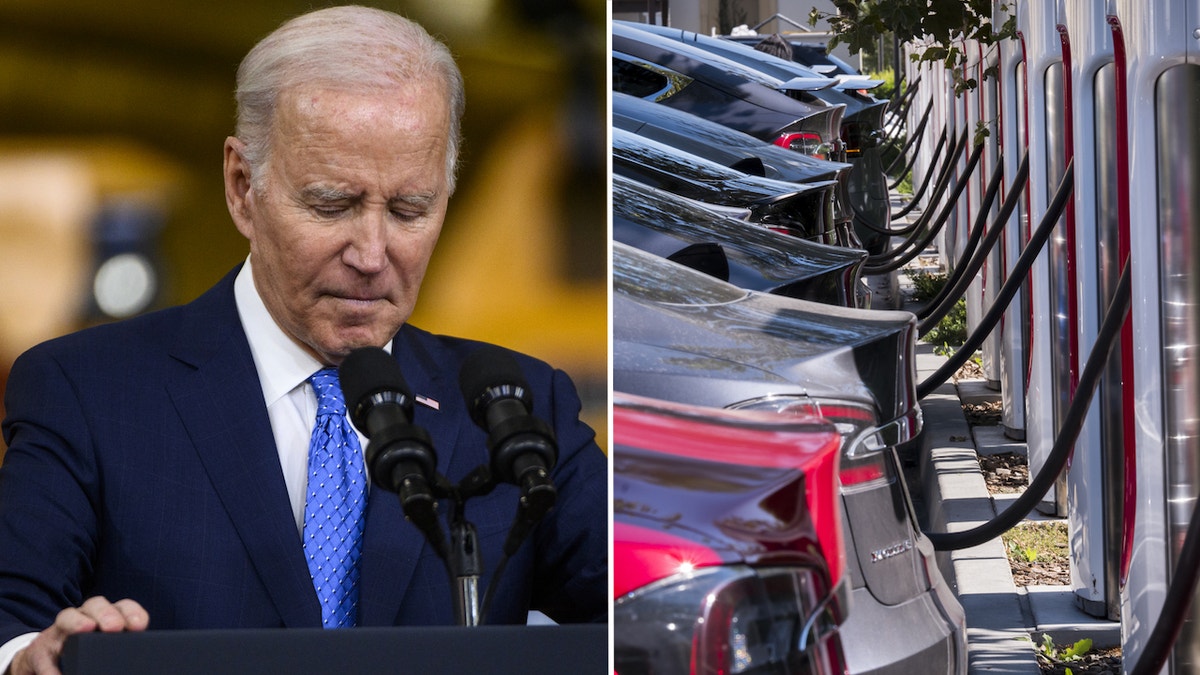Dealers Double Down: Fighting Back Against EV Mandates

Table of Contents
Financial Hurdles and Lobbying Efforts
The rapid shift towards electric vehicles presents significant financial hurdles for dealerships. Meeting the requirements of EV mandates demands substantial upfront investment and necessitates robust lobbying efforts to influence the pace and scope of these regulations.
High Upfront Investment Costs
Transitioning to an EV-centric model requires a significant capital investment. Dealerships need to upgrade their infrastructure, retrain staff, and adapt their showrooms to accommodate the specifics of electric vehicles.
- New Equipment: Installing fast-charging stations, purchasing specialized EV diagnostic tools, and upgrading service bays to handle high-voltage systems.
- Employee Retraining Programs: Training technicians on EV-specific maintenance, repair, and battery technology. This requires significant time and resources.
- Showroom Modifications: Adapting showrooms to showcase EVs effectively and create appealing charging station areas. This can involve significant redesign and construction costs.
Many dealerships are struggling financially due to these costs. The lack of immediate return on investment for these upgrades presents a substantial challenge, especially for smaller dealerships with limited capital reserves. Some are forced to take out loans, putting their businesses at risk if EV sales don't meet expectations.
Industry-Wide Lobbying Against Stringent Mandates
Facing these financial pressures, the automotive dealer industry is actively lobbying against what they perceive as overly aggressive and unrealistic EV mandates. Coalitions and lobbying groups are formed to influence legislation and create a more manageable transition.
- Legal Challenges: Dealerships are challenging the legality of some mandates, arguing that they are economically unfeasible or violate existing business regulations.
- Public Awareness Campaigns: Raising public awareness about the challenges of rapid EV adoption, including the need for improved charging infrastructure and grid stability.
- Engagement with Policymakers: Directly engaging with policymakers to advocate for more realistic timelines and supportive policies, such as tax incentives for EV infrastructure investment.
The core argument used by dealers against aggressive timelines is the lack of sufficient charging infrastructure and the limited consumer readiness for widespread EV adoption. They argue for a more gradual transition that allows dealerships to adapt financially and infrastructurally without jeopardizing their businesses.
Adapting Sales Strategies and Inventory Management
Beyond financial concerns and lobbying, dealerships are actively adapting their sales strategies and inventory management to accommodate the growing demand for electric vehicles.
Shifting Focus on Consumer Education
Overcoming consumer hesitancy towards EVs, particularly concerns about range anxiety and charging infrastructure, is crucial. Dealerships are investing heavily in consumer education initiatives.
- Test Drive Programs: Offering extensive test drive programs to allow potential customers to experience the benefits of EV driving firsthand.
- Informative Workshops: Conducting workshops and seminars to educate customers about EV technology, charging options, and government incentives.
- Online Resources: Developing comprehensive online resources, including FAQs, videos, and comparison tools, to address common consumer concerns.
Several dealerships have reported significant increases in EV sales after implementing robust consumer education programs. By actively addressing customer concerns, they are building trust and driving demand for electric vehicles.
Inventory Diversification and Strategic Partnerships
Balancing the inventory of internal combustion engine (ICE) vehicles and EVs is a significant challenge. Dealerships are using diverse strategies to effectively manage their inventory.
- Collaborations with EV Manufacturers: Building strong relationships with EV manufacturers to secure stable EV supply chains and receive preferential ordering options.
- Adjusting Order Quantities Based on Demand: Dynamically adjusting their orders based on real-time sales data and market trends to avoid overstocking or shortages.
- Offering Incentives for EV Purchases: Creating attractive incentives, such as financing options and bundled services, to boost EV sales.
Successful dealerships are finding ways to balance their ICE and EV inventories effectively, ensuring they meet the needs of a diverse customer base while mitigating the risks associated with a rapidly changing market.
Exploring Alternative Revenue Streams and Services
Dealerships are proactively exploring new revenue streams and service offerings to offset the challenges of EV mandates and capitalize on emerging opportunities.
Investing in Charging Infrastructure for Added Revenue
Installing charging stations offers a significant opportunity for additional revenue generation. Dealerships can leverage this infrastructure to attract customers and generate income through various models.
- Subscription Fees: Offering monthly subscription packages for access to charging stations.
- Pay-Per-Use Charging: Charging customers based on the amount of electricity used.
- Partnerships with Electricity Providers: Collaborating with electricity providers to offer bundled charging and energy services.
Several forward-thinking dealerships have successfully integrated charging stations into their operations, creating new revenue streams and attracting a wider customer base. This strategy positions them as essential hubs within their communities.
Offering EV Maintenance and Repair Services
The maintenance and repair of EVs represent a growing service area for dealerships. Specialised training and equipment are needed to handle the unique aspects of electric vehicles.
- Battery Diagnostics: Providing advanced battery diagnostics and testing services.
- Software Updates: Performing software updates and calibrations for EV systems.
- Specialized EV Mechanic Training: Investing in training programs for technicians to acquire the skills necessary to service EVs effectively.
This service area offers significant future growth potential as the number of EVs on the road increases. Dealerships that invest in this area will be well-positioned to capitalize on this expanding market segment.
Conclusion
The implementation of EV mandates presents significant challenges for auto dealerships. However, by proactively addressing financial hurdles, adapting sales strategies, and exploring alternative revenue streams, dealers are demonstrating their resilience and determination to navigate this transition. Successful strategies include active lobbying, consumer education initiatives, and diversification of services and revenue streams. To stay competitive and profitable in the evolving automotive landscape, dealerships must continue to double down on these strategies to effectively manage the impact of EV mandates. Don't get left behind – adapt your dealership's strategy now to thrive in the age of electric vehicles.

Featured Posts
-
 Bud Pa Eurovision 2026 Oernskoeldsvik I Hetluften
May 19, 2025
Bud Pa Eurovision 2026 Oernskoeldsvik I Hetluften
May 19, 2025 -
 Haalands Five Star Show Norway Dominates World Cup Qualifier
May 19, 2025
Haalands Five Star Show Norway Dominates World Cup Qualifier
May 19, 2025 -
 Uber Kenya Improved Earnings For Drivers And Couriers Plus Customer Cashback
May 19, 2025
Uber Kenya Improved Earnings For Drivers And Couriers Plus Customer Cashback
May 19, 2025 -
 Eurovision Song Contest 2025 Location And Dates Confirmed
May 19, 2025
Eurovision Song Contest 2025 Location And Dates Confirmed
May 19, 2025 -
 The Academy Dublin Hosts Marcus And Martinus Concert
May 19, 2025
The Academy Dublin Hosts Marcus And Martinus Concert
May 19, 2025
